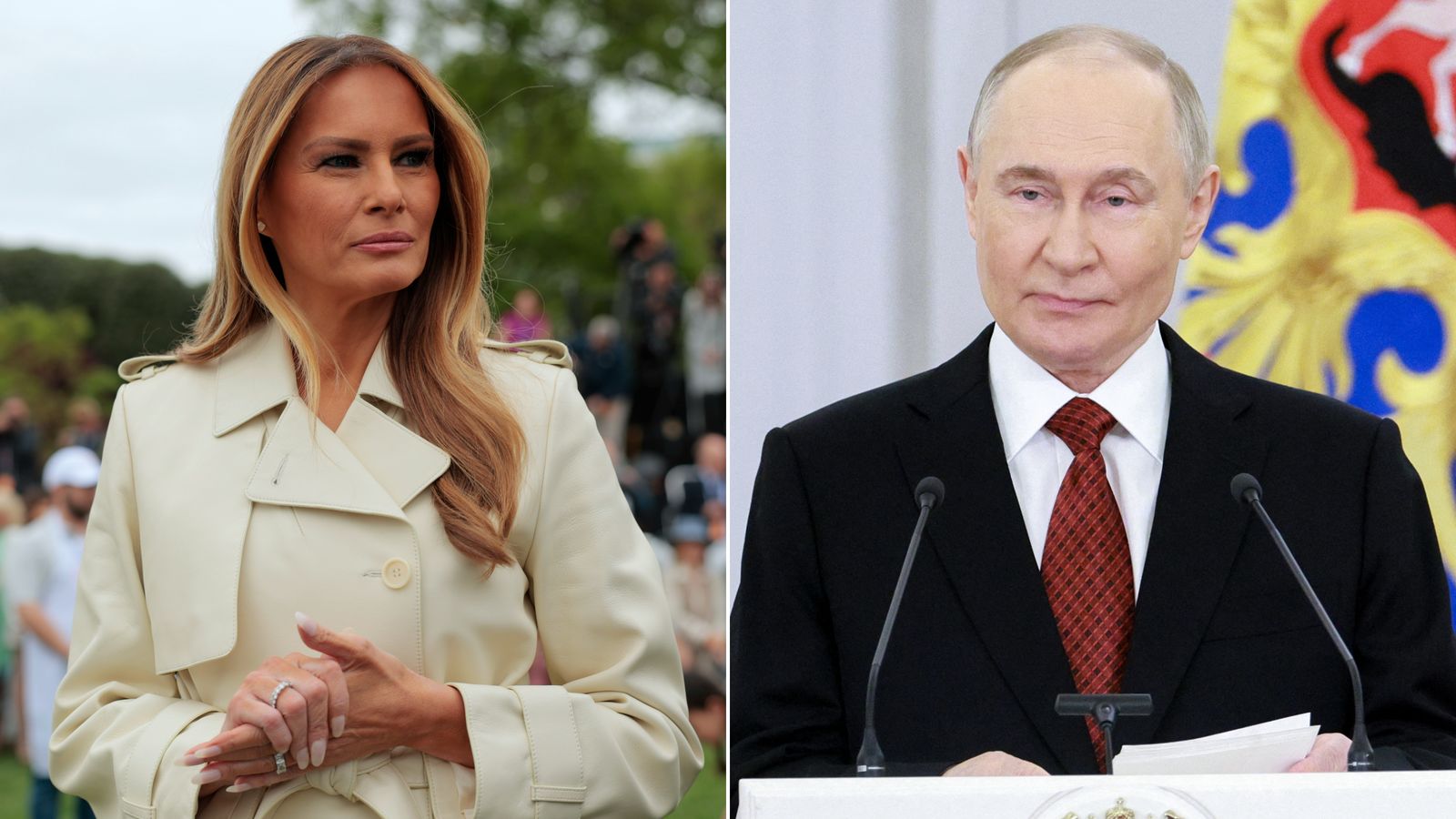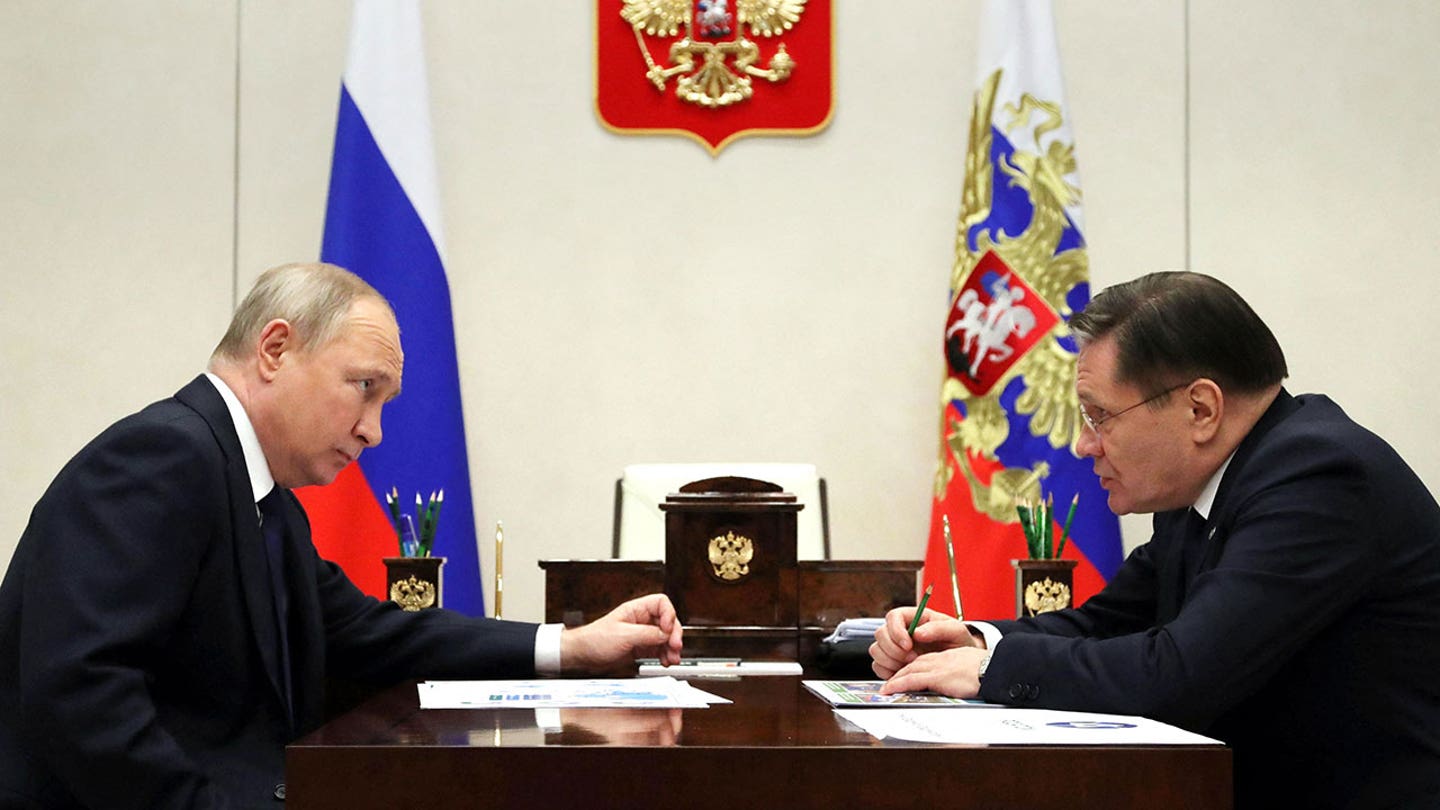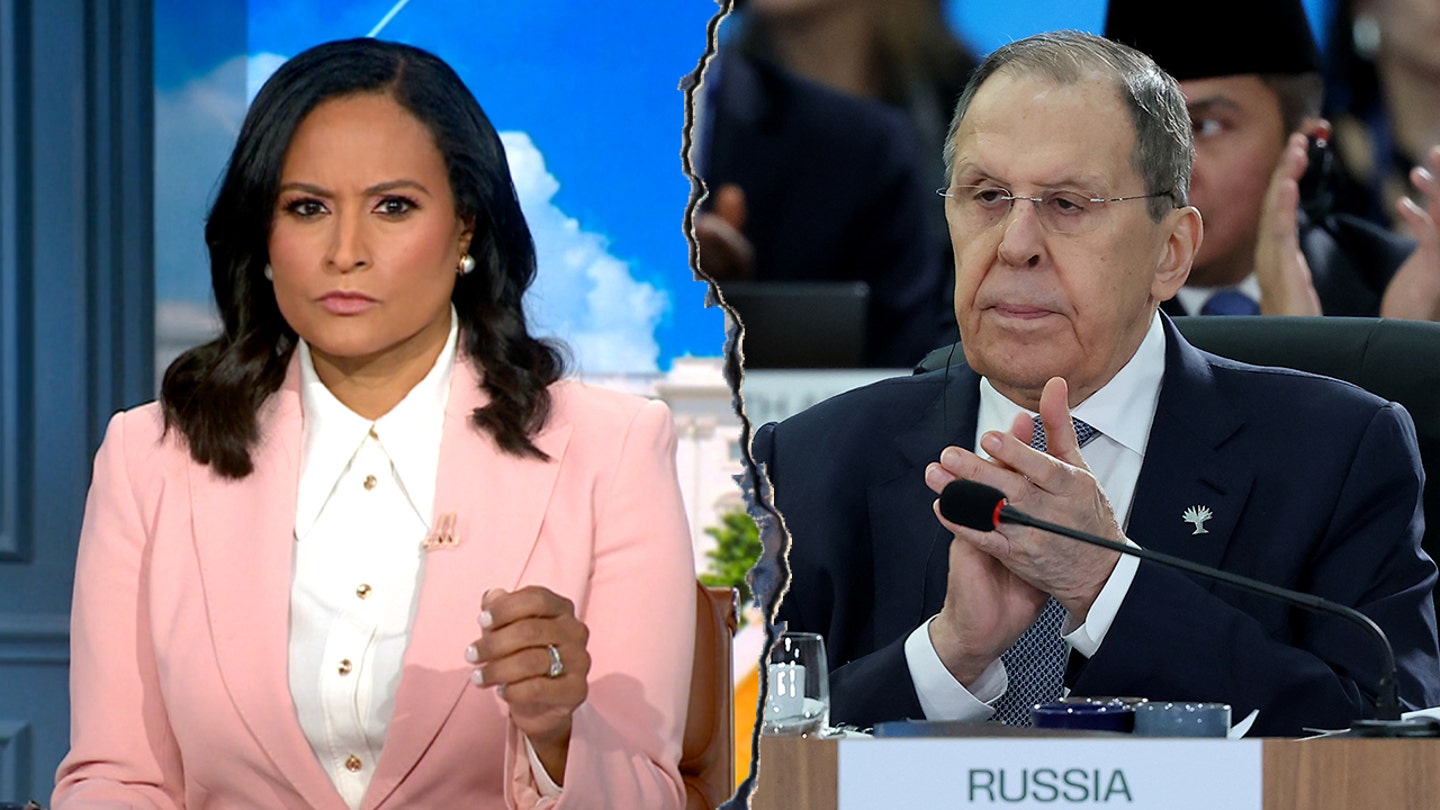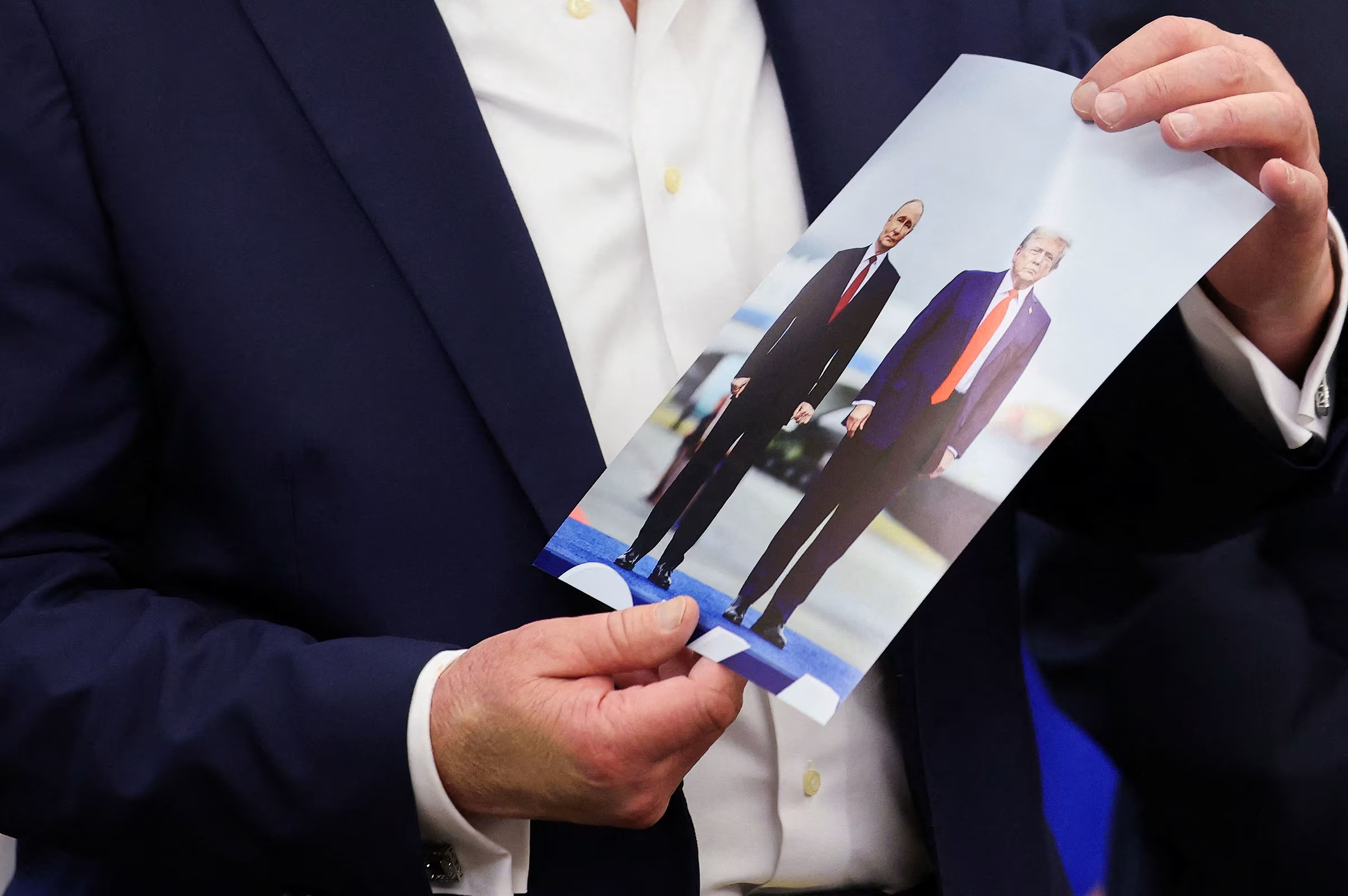
Bolton unleashes on Trump Ukraine policy days after FBI raid
Entities mentioned:
- John Bolton: Revenge, Self-preservation, Justice
- Donald Trump: Power, Recognition, Legacy
- FBI: Duty, Justice, Security
- Vladimir Putin: Power, Control, Influence
- Pentagon: Security, Control, Professional pride
Article Assessment:
Credibility Score: 65/100
Bias Rating: 55/100 (Center)
Sentiment Score: 30/100
Authoritarianism Risk: 35/100 (Generally Democratic)
Bias Analysis:
The article presents multiple viewpoints, including criticisms of Trump's policies, but relies heavily on Bolton's perspective. While it includes some factual reporting, the emphasis on Bolton's critique slightly tilts the balance, though not significantly enough to be classified as partisan.
Key metric: International Relations and Diplomacy
As a social scientist, I analyze that this article highlights significant tensions in U.S. foreign policy, particularly regarding Ukraine and Russia. Bolton's critique of Trump's approach suggests a lack of coherence and strategy in diplomatic efforts, potentially weakening the U.S. position on the global stage. The reported FBI raid on Bolton's property adds another layer of complexity, indicating potential internal conflicts within the U.S. political establishment. This situation could impact U.S. credibility in international negotiations and alliances, especially concerning Eastern European security dynamics. The discord between different branches of government (White House, Pentagon) on Ukraine policy further underscores the challenges in maintaining a unified and effective foreign policy stance.

DC arrests surpass 1,000 as Trump-backed crackdown enters 12th homicide-free day
Entities mentioned:
- John Bolton: Revenge, Self-preservation, Indignation
- Donald Trump: Power, Recognition, Legacy
- FBI: Justice, Duty, Professional pride
- Vladimir Putin: Power, Control, Influence
- Pentagon: Security, Control, Professional pride
Article Assessment:
Credibility Score: 70/100
Bias Rating: 55/100 (Center)
Sentiment Score: 30/100
Authoritarianism Risk: 35/100 (Generally Democratic)
Bias Analysis:
The article presents multiple viewpoints, including critical perspectives of Trump's policies, but also includes Trump's actions without overtly positive or negative framing. While it leans slightly towards criticism, it maintains a relatively balanced approach by presenting factual information from various sources.
Key metric: International Relations and Diplomacy
As a social scientist, I analyze that this article highlights significant tensions in U.S. foreign policy, particularly regarding the Ukraine conflict. Bolton's critique of Trump's approach suggests a lack of coherence and strategy in diplomatic efforts, potentially weakening the U.S. position on the global stage. The reported FBI raid on Bolton's property adds another layer of complexity, indicating potential internal conflicts within the U.S. political establishment. This situation could have far-reaching implications for U.S. credibility in international negotiations and its relationships with allies. The article also touches on the delicate balance of power between different branches of government, particularly the executive and law enforcement agencies, which could impact the effectiveness of U.S. foreign policy implementation.

Privately influential but publicly absent, Melania Trump is picking and choosing her moments this term
Entities mentioned:
- Melania Trump: Influence, Legacy, Self-preservation
- Donald Trump: Power, Legacy, Control
- Vladimir Putin: Power, Control, Influence
- Volodymyr Zelensky: Unity, Security, Justice
Article Assessment:
Credibility Score: 75/100
Bias Rating: 55/100 (Center)
Sentiment Score: 50/100
Authoritarianism Risk: 30/100 (Generally Democratic)
Bias Analysis:
The article presents a balanced view of Melania Trump's role, including both positive and critical perspectives. It relies on named sources and provides context, though some anonymous sources are used, which slightly reduces its centrism.
Key metric: US Diplomatic Influence
As a social scientist, I analyze that Melania Trump's behind-the-scenes influence and selective public engagement represent a unique approach to the first lady role. Her focus on children's issues and her background from communist Yugoslavia lend credibility to her diplomatic efforts, particularly regarding the Ukraine conflict. However, her limited public presence and reduced staff compared to previous first ladies suggest a deliberate strategy to maintain privacy and control over her image. This approach may impact the traditional soft power wielded by first ladies in US diplomacy, potentially reducing overall diplomatic influence but allowing for targeted, high-impact interventions on specific issues.

Trump’s new warnings about mail-in voting are the most sinister yet
Entities mentioned:
- Donald Trump: Power, Control, Self-preservation
- Vladimir Putin: Influence, Control, Power
- Republican Party: Power, Control, Self-preservation
- Democratic Party: Justice, Security, Freedom
- Karoline Leavitt: Loyalty, Duty, Professional pride
- Adrian Fontes: Justice, Duty, Wariness
- Katie Porter: Justice, Ambition, Moral outrage
- Volodymyr Zelensky: Duty, Security, Self-preservation
Article Assessment:
Credibility Score: 75/100
Bias Rating: 35/100 (Lean Left)
Sentiment Score: 25/100
Authoritarianism Risk: 70/100 (Authoritarian Tendencies)
Bias Analysis:
The article leans left in its framing, presenting Trump's actions as a clear threat to democracy. While it includes factual information, the tone and language choices (e.g., 'sinister', 'alarming') suggest a negative view of Trump and his allies.
Key metric: Electoral Integrity
As a social scientist, I analyze that this article highlights a significant threat to electoral integrity in the United States. Trump's renewed attacks on mail-in voting, coupled with his false claims of election fraud and attempts to influence future elections, pose a serious risk to democratic processes. The article suggests a pattern of behavior aimed at undermining faith in electoral systems, potentially to lay groundwork for contesting future election results. This could lead to decreased voter confidence, increased political polarization, and potential civil unrest. The involvement of foreign influence (Putin) in shaping domestic election narratives is particularly concerning, as it may exacerbate existing tensions and further erode trust in democratic institutions.

A week after Trump embraced Putin, the Ukraine peace effort is going nowhere
Entities mentioned:
- Donald Trump: Power, Recognition, Legacy
- Vladimir Putin: Control, Power, Influence
- Volodymyr Zelensky: Self-preservation, Loyalty, Duty
- Sergey Lavrov: Loyalty, Obstruction, Control
- Marco Rubio: Duty, Professional pride, Wariness
- Emmanuel Macron: Unity, Influence, Duty
- Steve Witkoff: Loyalty, Ambition, Influence
- Karoline Leavitt: Loyalty, Professional pride, Control
Article Assessment:
Credibility Score: 75/100
Bias Rating: 35/100 (Lean Left)
Sentiment Score: 35/100
Authoritarianism Risk: 25/100 (Generally Democratic)
Bias Analysis:
The article leans slightly left, criticizing Trump's approach while presenting a more sympathetic view of European allies and Ukraine. The language used is often skeptical of Trump's methods and motivations, though it does acknowledge some positive aspects of his efforts.
Key metric: International Diplomatic Influence
As a social scientist, I analyze that this article highlights the complex dynamics of international diplomacy and the challenges of brokering peace in the ongoing Russia-Ukraine conflict. Trump's efforts to negotiate peace are portrayed as naive and potentially counterproductive, with Putin seemingly outmaneuvering him diplomatically. The article suggests that Trump's desire for a quick resolution overlooks the deep-seated issues and strategic implications of the conflict. The piece also underscores the tensions between the U.S., Europe, and Russia, as well as the precarious position of Ukraine. The credibility of Trump's dealmaking abilities is questioned, which could impact the U.S.'s diplomatic influence on the global stage. The article implies that without a more nuanced and patient approach, coupled with a willingness to exert pressure on Russia, the peace process is unlikely to yield significant results, potentially diminishing America's role as a global mediator.

Russia looks to update nuclear program amid ‘colossal threats’ from West
Entities mentioned:
- Alexei Likhachev: Security, Power, Duty
- Vladimir Putin: Power, Security, Influence
- Donald Trump: Security, Competitive spirit, Power
- Russia: Security, Power, Self-preservation
- United States: Security, Influence, Power
- China: Power, Influence, Security
Article Assessment:
Credibility Score: 75/100
Bias Rating: 55/100 (Center)
Sentiment Score: 30/100
Authoritarianism Risk: 55/100 (Mixed/Neutral)
Bias Analysis:
The article presents a relatively balanced view, incorporating perspectives from both Russian and U.S. sources. However, there's a slight lean towards Western viewpoints, particularly in framing Russia's actions as potentially threatening.
Key metric: Global Nuclear Stability Index
As a social scientist, I analyze that this article highlights a concerning trend towards nuclear armament and away from disarmament efforts. Russia's emphasis on upgrading its nuclear capabilities, coupled with similar rhetoric from the U.S., suggests a potential new arms race. This development, along with the uncertain future of the New Start Treaty, could significantly destabilize global nuclear security. The article underscores the tensions between major powers and the use of nuclear capabilities as a geopolitical tool, which may lead to increased global instability and a higher risk of nuclear conflict.

Russian foreign minister accuses NBC host of wanting something to 'sell' during tense Ukraine exchange
Entities mentioned:
- Kristen Welker: Professional pride, Determination, Duty
- Sergey Lavrov: Control, Loyalty, Self-preservation
- Volodymyr Zelenskyy: Unity, Self-preservation, Determination
- Vladimir Putin: Power, Control, Pride
- Donald Trump: Influence, Power, Recognition
Article Assessment:
Credibility Score: 70/100
Bias Rating: 55/100 (Center)
Sentiment Score: 35/100
Authoritarianism Risk: 45/100 (Mixed/Neutral)
Bias Analysis:
The article presents both Russian and American perspectives, though it gives more space to the American viewpoint. The inclusion of Trump's statements and the framing of Lavrov's responses suggest a slight lean towards Western perspectives, but overall maintains a relatively balanced approach.
Key metric: International Relations and Diplomacy
As a social scientist, I analyze that this article highlights the ongoing tension between Russia and the West regarding the conflict in Ukraine. The exchange between NBC's Kristen Welker and Russian Foreign Minister Sergey Lavrov demonstrates Russia's refusal to acknowledge its actions as an invasion, instead framing it as a 'special military operation'. This semantic dispute reflects deeper geopolitical conflicts and differing narratives about the situation. The article also touches on the role of the United States, particularly President Trump's involvement in negotiations, which suggests a complex diplomatic landscape with potential implications for global power dynamics and conflict resolution efforts.

Trump again gives Putin ‘a couple of weeks’ with no sign of Ukraine peace talks underway
Entities mentioned:
- Donald Trump: Power, Control, Influence
- Vladimir Putin: Power, Control, Self-preservation
- Volodymyr Zelensky: Self-preservation, Justice, Unity
- Sergey Lavrov: Loyalty, Duty, Control
Article Assessment:
Credibility Score: 75/100
Bias Rating: 45/100 (Center)
Sentiment Score: 35/100
Authoritarianism Risk: 55/100 (Mixed/Neutral)
Bias Analysis:
The article presents a relatively balanced view, quoting Trump directly and providing context. While it doesn't overtly criticize Trump's approach, it subtly highlights the lack of progress and uncertainty in his diplomatic efforts.
Key metric: International Relations and Diplomacy
As a social scientist, I analyze that this article highlights the complex dynamics of international diplomacy, particularly in the context of the Russia-Ukraine conflict. Trump's approach of setting deadlines and attempting to broker meetings between Putin and Zelensky demonstrates an unconventional diplomatic strategy. The repeated extension of deadlines and vague threats of consequences suggest a lack of concrete policy or leverage. This approach may impact US credibility in international relations, potentially weakening its position as a global mediator. The article also reveals the challenges of multilateral negotiations, with Russia showing reluctance to engage in the proposed talks. Trump's personal relationship with Putin, as evidenced by the photo exchange, raises questions about the influence of personal dynamics on diplomatic efforts. The overall impact on international relations metrics appears to be negative, as it showcases uncertainty in US foreign policy and a potential shift in global power dynamics.

Zelenskyy seeks 'strong reaction' from US if Putin is not ready for bilateral meeting
Entities mentioned:
- Volodymyr Zelenskyy: Determination, Justice, Self-preservation
- Vladimir Putin: Power, Control, Influence
- Donald Trump: Ambition, Recognition, Influence
- United States: Influence, Security, Unity
- Russia: Power, Control, Influence
- Ukraine: Self-preservation, Freedom, Justice
Article Assessment:
Credibility Score: 75/100
Bias Rating: 45/100 (Center)
Sentiment Score: 40/100
Authoritarianism Risk: 35/100 (Generally Democratic)
Bias Analysis:
The article presents a relatively balanced view, quoting multiple sides and sources. It leans slightly towards a Western perspective but attempts to provide context from all parties involved.
Key metric: International Diplomatic Influence
As a social scientist, I analyze that this article highlights the complex diplomatic maneuvering in the ongoing Russia-Ukraine conflict, with the United States playing a central mediating role. Zelenskyy's call for a 'strong reaction' from the US if Putin declines a bilateral meeting suggests Ukraine's reliance on US support and pressure tactics. Trump's involvement indicates the US's continued influence in international affairs, despite potential domestic controversies. The article underscores the delicate balance of power dynamics, with each leader pursuing their own agenda while navigating the constraints of international diplomacy. The emphasis on territorial concessions and security guarantees reflects the high stakes involved in any potential peace agreement, highlighting the challenges in resolving long-standing geopolitical conflicts.

Giving Putin the Donbas would hand Moscow powerful leverage over Kyiv’s financial survival
Entities mentioned:
- Volodymyr Zelenskyy: Determination, Loyalty, Self-preservation
- Vladimir Putin: Power, Control, Ambition
- Elina Beketova: Professional pride, Duty, Influence
- Grace Mappes: Professional pride, Duty, Influence
- Russia: Power, Control, Greed
- Ukraine: Self-preservation, Freedom, Unity
Article Assessment:
Credibility Score: 75/100
Bias Rating: 45/100 (Center)
Sentiment Score: 35/100
Authoritarianism Risk: 25/100 (Generally Democratic)
Bias Analysis:
The article presents a balanced view, incorporating perspectives from multiple experts and providing context. While it leans slightly towards the Ukrainian perspective, it maintains a generally neutral tone in presenting facts and analysis.
Key metric: Economic Stability
As a social scientist, I analyze that this article highlights the critical importance of the Donbas region to Ukraine's economic survival and Russia's strategic interests. The region's vast natural resources, including coal, salt, and gas, represent significant economic leverage. Conceding this area to Russia would not only weaken Ukraine's defensive capabilities but also severely impact its ability to finance post-war reconstruction. The estimated $524 billion needed for recovery underscores the magnitude of Ukraine's economic challenges. The article suggests that Russia's proposal for Ukraine to cede the Donbas is not a genuine compromise but a strategic maneuver to gain control over critical resources and weaken Ukraine's position. This situation directly impacts Ukraine's economic stability, a key performance metric for the country's future viability and independence.